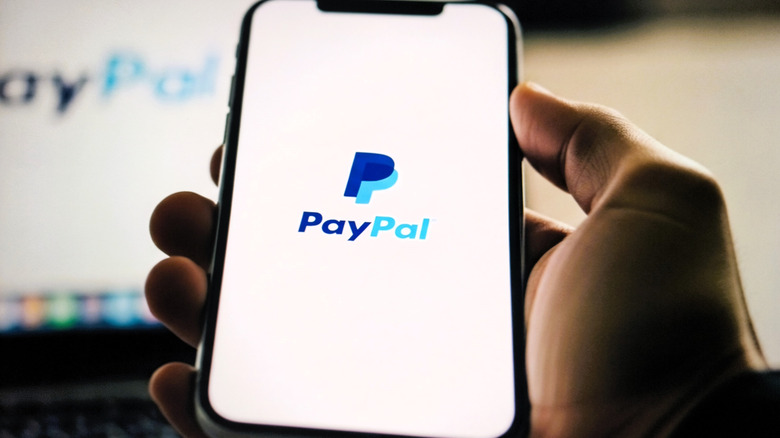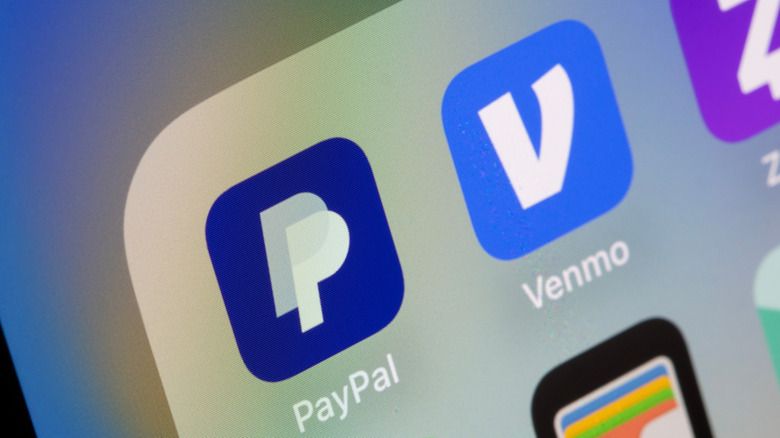Are Paypal And Venmo The Same Company? Who Owns Who, Explained
Physical money has, arguably, been heading towards extinction for the better part of the past decade as people the world over become more comfortable paying for goods and services via apps and online transfers. There are now more options than ever available for online payments, with names like PayPal, Zelle and Venmo ranking alongside more recent additions like Apple Wallet and Google Pay.
One could easily make a case that PayPal and Venmo are the biggest names in that lot. The former operation has been in the game for just over two decades now. Even as certain factions like Amazon do not currently accept PayPal as a method of payment, the platform still boasts millions of users the world over. As for Venmo, it has become such a popular method for many online banking enthusiasts to safely transfer funds in recent years that the name itself is quite often used as a verb.
You may not realize it, but PayPal and Venmo have a lot more in common than just a consumer base. In fact, these days they are essentially the same company, after PayPal took ownership of the Venmo brand and platform in a 2013 acquisition. That deal actually found PayPal dropping $800 million to acquire Braintree, which itself had paid $26.5 million to take control of Venmo a few years prior.
PayPal and Venmo are focused on different styles of transaction
In a move widely covered by news outlets, PayPal has been shaking up its internal structure in 2025. That includes a major move that led the company to consolidate many of its various holdings — including Braintree, Zettle, Chargehound, and HyperWallet — under a single ownership banner dubbed PayPal Open. Despite its former ties to Braintree, Venmo was not part of the PayPal Open change, with PayPal opting instead to keep the mobile payment service a standalone subsidiary.
PayPal's leadership reportedly made that decision because they felt Venmo's market presence was strong enough that folding into the PayPal brand wasn't necessary. Even still, given the similarities between the brands, there's reason to wonder whether PayPal isn't just double-dipping in the arena of mobile and online payment platforms. While there is no doubt a bit of crossover between the platforms, the primary point of divergence between PayPal and Venmo is their target customer base.
At present, the former faction is largely concerned with providing payment methods for major e-commerce operations and delivering international functionality to merchants with global needs. Venmo, on the other hand, is similar to CashApp in that it's a more socially motivated platform focused on peer-to-peer transactions that are conducted within the United States. Other points of diversion included Venmo offering free transactions between linked bank accounts, and though many of PayPal's functions are free, the platform does charge fees for some types of transactions. PayPal occasionally also puts a hold on funds for certain transactions, with Venmo rarely doing so.

